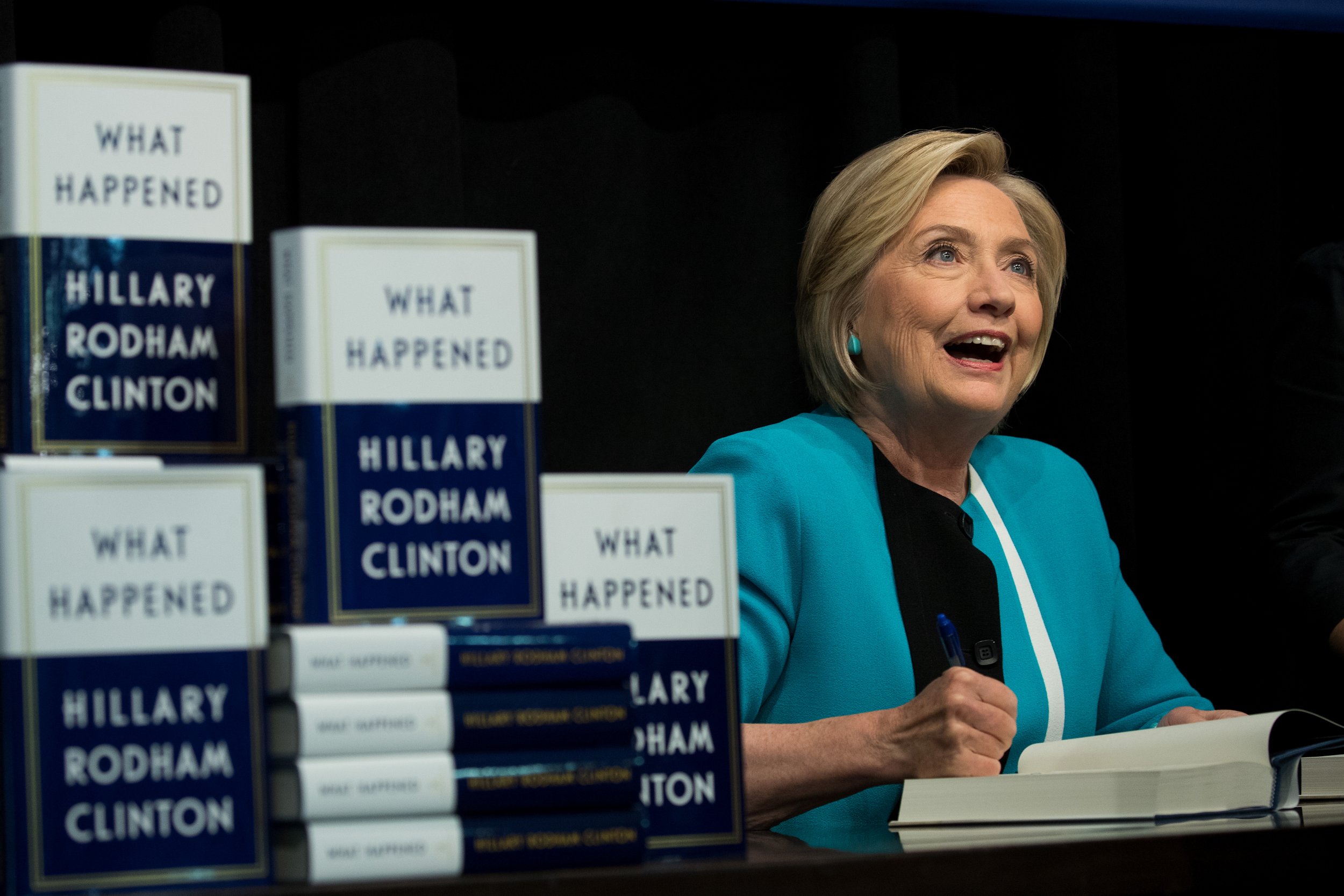
David Duke, the former Ku Klux Klan leader, was an enthusiastic supporter of Donald Trump during the presidential campaign. "He's meant a lot for the human rights of European Americans," Duke gushed to Politico in 2015. For his part, Trump was reluctant to denounce Duke when speaking last year to CNN's Jake Tapper, doing his best to distance himself from white supremacists without having to explicitly condemn them.
But according to Jeffrey Lord, the conservative commentator, it is Hillary Clinton who hews closely to Duke's hateful vision. Lord says so in a Breitbart News column published over the weekend, with the headline "Hillary Clinton Is the New David Duke." It was Lord's first contribution to Breitbart, the extreme-right news organization that has been accused of anti-Semitism and Islamophobia. Lord was fired from CNN earlier this summer for using a Nazi slogan to taunt a liberal critic on Twitter.
Lord's debut column is in keeping with his history of political provocation. The onetime Ronald Reagan aide has become stridently right-wing in his political opinions in recent years, having once compared President Barack Obama to Mao Zedong and, more recently, branded Donald J. Trump an equal of Martin Luther King, Jr. Speaking on Fox News after his firing, Lord cast himself as a "First Amendment fundamentalist." Critics, however, marvel at his loyalty to Trump. "If he took a dump on his desk, you would defend it," CNN's Anderson Cooper once told his erstwhile colleague.
The Breitbart column references an interview Clinton gave to CBS's Jane Pauley as she was promoting her new book about the 2016 election, What Happened. During the interview, Clinton said "millions of white people" were attracted to Trump's message, which she described as "a nostalgia that would give hope, comfort, settle grievances."
Lord seizes on the obvious, incontrovertible assertion that it was white voters in the upper Midwest who were in good part responsible for Trump's narrow electoral win. Clinton herself is white. She did not disparage white voters or make sweeping assumptions about them. Nor did she engage in anything remotely like the hateful rhetoric that Duke and his fellow white supremacists deploy against African-Americans. But because Clinton did acknowledge race, she was a racist.
Aidan McLaughlin of Mediate calls Lord's column "slightly confusing," which may be a generous assessment. Lord's central argument has little to do with Clinton, or with Duke, whose politics or sensibilities Clinton has no kinship with whatsoever. Rather, he seems to reprise the argument right-wing pundit Dinesh D'Souza makes in his new book The Big Lie, which is that the Democratic Party, for all its liberal pretensions, is actually the party of racism, fascism and intolerance. Breitbart published at least a half-dozen articles on D'Souza's book throughout the summer. D'Souza also promoted his book at the White House, where he met with Sebastian Gorka and Stephen Bannon. Both men have since been dismissed, with Bannon returning to run Breitbart News. They have also both been accused of anti-Semitism and other forms of intolerance.
Lord invokes beloved Republican tropes—"identity politics" and "the race card"—without ever explaining what they mean. In fact, both phrases seem to have lost any significance they'd ever had. Frequently, as in this instance, they are simply used by critics to bludgeon anyone wishing to discuss the role of race in contemporary American society.
Lord also reprises D'Souza's argument that racism is deeply entrenched in the DNA of the Democratic Party. He cites, specifically, the regressive racial outlook of Woodrow Wilson and Franklin D. Roosevelt. "Progressives and racism were the peanut butter and jelly of Leftist politics," Lord writes. Many historians would call this a wild, inaccurate simplification of American history intended solely to score cheap political points.
What does this have to do with 2017? Nothing, really. But it does suggest that the desire to malign Clinton remains the only idea that unites the right, as evidenced by the vitriolic reaction to What Happened. And there is the parallel wish to exculpate Trump for the recent racial violence in Charlottesville, Virginia, which was instigated by white nationalists and led to three deaths.
If offense is the best defense, then casting Clinton as a racist is the best means of proving Trump isn't one. Of course, he doesn't help his own case: Late last week, Trump said again that there "bad dudes on the other side," drawing an equivalency between white supremacists and counterprotesters in Charlottesville. Once again, there was dismay at Trump's inability to forcefully disavow the messengers of hate unless he is made to do so while reciting words off a teleprompter.
Not that you'd know that from reading Lord's column. While the racism of Woodrow Wilson suggested a decently thorough perusal of Wikipedia, Trump's own shortcomings went unmentioned.
Uncommon Knowledge
Newsweek is committed to challenging conventional wisdom and finding connections in the search for common ground.
Newsweek is committed to challenging conventional wisdom and finding connections in the search for common ground.
About the writer
Alexander Nazaryan is a senior writer at Newsweek covering national affairs.
To read how Newsweek uses AI as a newsroom tool, Click here.








